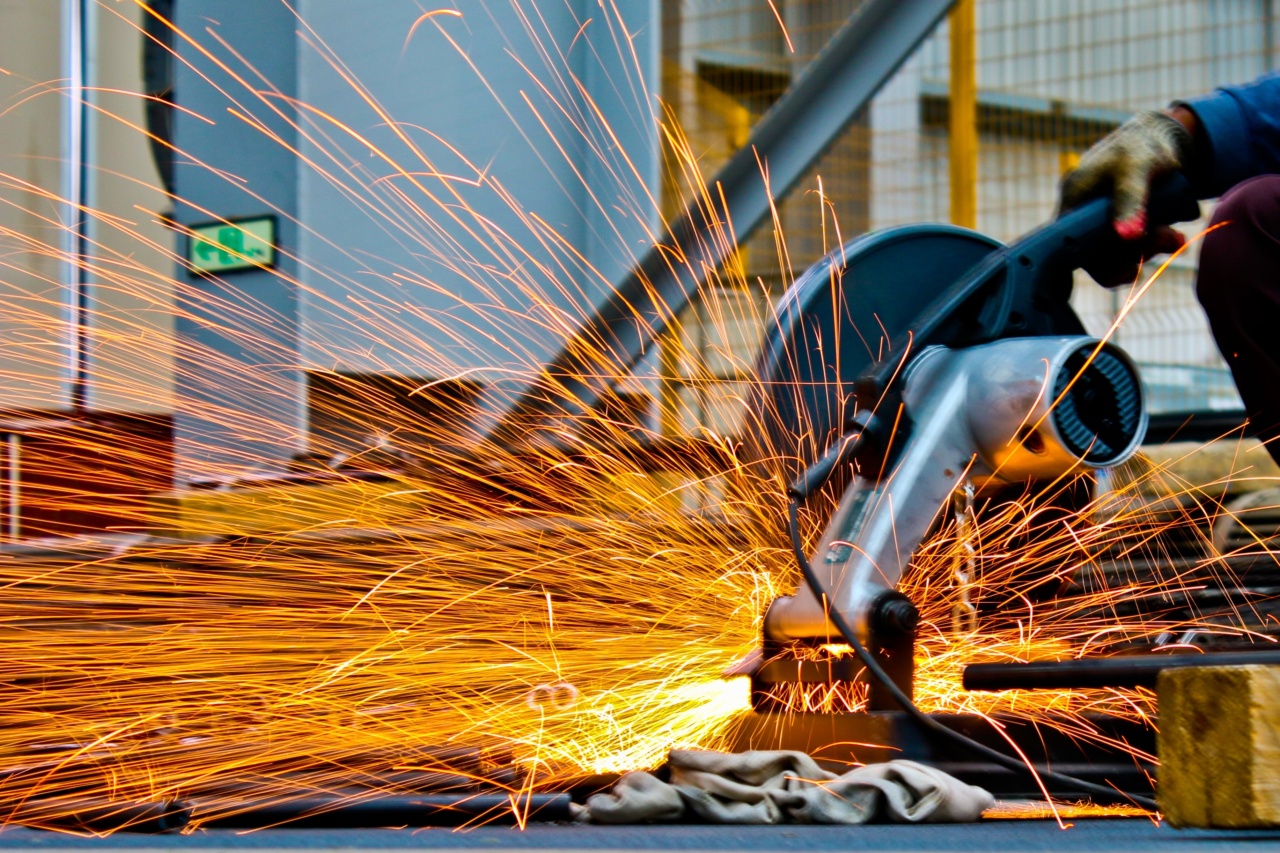Iron is an essential mineral that plays a crucial role in many bodily functions. It is necessary for the production of hemoglobin, a protein present in red blood cells that carries oxygen from the lungs to the rest of the body.
Iron also helps support a healthy immune system and promotes proper cognitive function.
Causes of Iron Deficiency
Iron deficiency occurs when the body doesn’t have enough iron to produce adequate amounts of hemoglobin. Several factors can contribute to iron deficiency, including:.
Inadequate Dietary Intake
One of the primary reasons for iron deficiency is a lack of iron-rich foods in your diet. If you don’t consume enough iron through your meals, your body won’t have the necessary resources to produce adequate hemoglobin.
This is particularly common in individuals who follow restrictive diets or have poor eating habits.
Poor Iron Absorption
Even if you consume iron-rich foods, your body may struggle to absorb the iron efficiently. Certain factors can inhibit iron absorption, such as consuming tea or coffee with meals, as they contain compounds that bind to iron and reduce its absorption.
Additionally, certain medications and medical conditions can interfere with iron absorption, leading to deficiency.
Blood Loss
Chronic blood loss can gradually deplete your iron stores and lead to iron deficiency. In women, heavy menstrual periods can be a significant cause of blood loss and subsequent iron deficiency.
Other sources of blood loss include gastrointestinal bleeding, such as ulcers, polyps, or certain digestive disorders.
Increased Iron Needs
Some individuals may require higher amounts of iron due to increased demands on their bodies. This primarily includes pregnant women, who need more iron to support the growth and development of their baby.
Lactating women also require increased iron to compensate for iron loss through breast milk.
Symptoms of Iron Deficiency
Iron deficiency can cause various symptoms, which can differ from person to person. Some common signs of iron deficiency include:.
Fatigue and Weakness
Iron is vital for energy production, and a lack of iron can leave you feeling tired, weak, and lethargic. You may experience a general lack of energy throughout the day, struggling to perform daily activities that were once easy.
Pale Skin
Iron deficiency can affect the appearance of your skin, making it appear pale or sallow. This is because iron is essential for the production of red blood cells, which provide a healthy, rosy complexion.
Shortness of Breath
If your body lacks adequate iron, it may struggle to supply enough oxygen to your tissues and organs. This can lead to shortness of breath, particularly during physical activity.
Weak Immune System
Iron plays a vital role in maintaining a strong immune system. When iron levels are low, your body’s ability to fight off infections and illnesses may be compromised.
You may experience frequent infections, slower wound healing, or general susceptibility to illnesses.
Restless Legs Syndrome
Restless Legs Syndrome (RLS) is a condition characterized by an uncontrollable urge to move the legs, usually accompanied by uncomfortable sensations.
Although the exact cause of RLS is unknown, iron deficiency has been linked to the development and worsening of symptoms.
Iron-Rich Foods to Boost Iron Levels
Fortunately, there are numerous iron-rich foods that can help boost your iron levels naturally. Including these foods in your diet regularly can help prevent or alleviate iron deficiency:.
1. Red Meat
Red meat, particularly beef, is one of the best food sources of readily available heme iron. Heme iron is easier for the body to absorb compared to non-heme iron found in plant-based foods.
Opt for lean cuts of meat and avoid excessive consumption for overall health.
2. Organ Meats
Organ meats, such as liver, kidney, and heart, are excellent sources of iron. They are also packed with other essential nutrients like Vitamin B12, which is vital for red blood cell formation.
Incorporate these nutrient-dense meats into your meals for a nutrient boost.
3. Shellfish
Shellfish, including clams, mussels, and oysters, are rich in iron and other micronutrients. They provide a good source of heme iron as well as zinc and Vitamin B12. Enjoy shellfish as a tasty addition to your diet to increase your iron intake.
4. Legumes
Legumes, such as lentils, chickpeas, and beans, are rich in iron, especially non-heme iron. While non-heme iron is not as easily absorbed by the body, consuming legumes alongside Vitamin C-rich foods can enhance iron absorption.
Adding legumes to soups, salads, or serving them as a side dish can boost your iron levels.
5. Dark Leafy Greens
Dark leafy greens, including spinach, kale, and collard greens, are packed with iron and other vital nutrients. While their iron content is non-heme iron, eating them alongside sources of Vitamin C will enhance iron absorption.
Incorporate these nutritious greens into salads, stir-fries, or smoothies.
6. Nuts and Seeds
Nuts and seeds, such as pumpkin seeds, cashews, and almonds, offer a good source of iron. They also provide healthy fats and other essential minerals.
Snack on a handful of nuts or use them as toppings in salads, oats, or stir-fries to increase your iron intake.
7. Fortified Cereals
Many breakfast cereals are fortified with iron and other essential vitamins and minerals. Check the labels to ensure you choose a cereal that provides a significant amount of iron.
Enjoy a bowl of fortified cereal with milk or yogurt in the morning as an iron-rich start to your day.
8. Tofu
Tofu is a vegetarian source of iron and other essential nutrients. It can be a versatile addition to various dishes, absorbing the flavors of your seasonings and sauces. Include tofu in stir-fries, soups, or salads for an iron-rich protein option.
9. Dried Fruits
Dried fruits, such as raisins, apricots, and figs, are compact sources of iron. They also offer dietary fiber and antioxidants. Snack on dried fruits or add them to your oatmeal, trail mix, or yogurt for a naturally sweet and iron-rich treat.
10. Dark Chocolate
In addition to its delightful taste, dark chocolate contains iron. Opt for high-quality dark chocolate with a high cocoa content for maximum nutritional benefits.
Enjoy a small piece of dark chocolate as an occasional treat to satisfy your sweet tooth and boost your iron intake.
Incorporating these iron-rich foods into your diet can help prevent or alleviate iron deficiency. If you suspect you have iron deficiency, it’s essential to consult with a healthcare professional for proper diagnosis and treatment.
They may recommend iron supplements in addition to dietary changes to address your specific needs.































